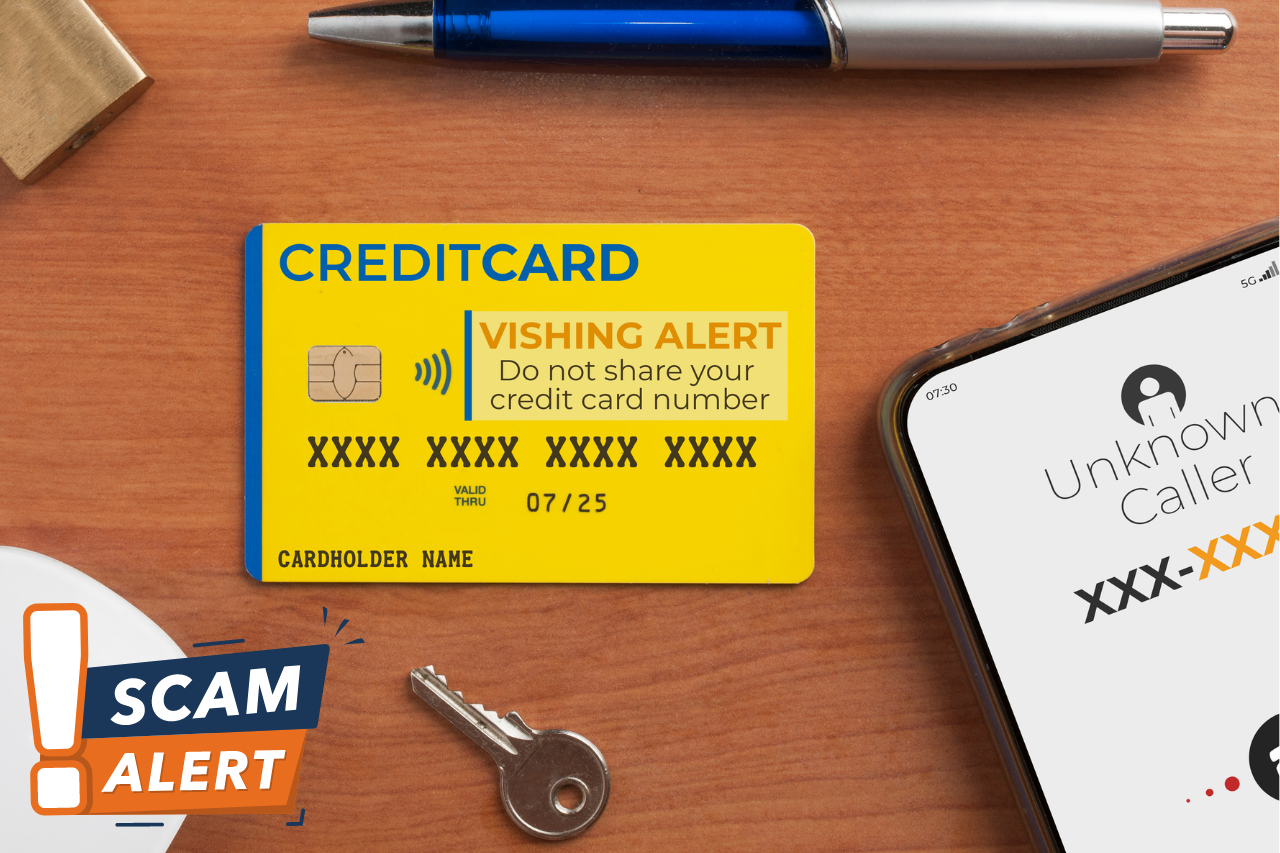
Article from the United States Postal Inspection Service dated 06/17/2024
Have you received a phone call or voicemail message from an unfamiliar number claiming to need to verify sensitive personal information? If so, don’t respond, delete the voicemail. This type of scam called vishing.
Vishing, short for voice phishing, is an identity fraud scam utilizing a phone call or voicemail. Scammers will call or leave a voicemail and impersonate someone they are not, and attempt to illicit sensitive information, like login credentials, personal identifying information, credit card numbers or other banking details. These impostors may pretend to be Postal Inspectors, or other persons in USPS and USPIS positions of authority. They may attempt to coerce you with threats of arrest or some other punishment.
If you ever receive a phone call or voicemail from an individual claiming to be a Postal Inspector or other law enforcement official- alleging there is an active warrant out for your arrest, be careful. These individuals impersonate law enforcement, or other positions of authority, and will manufacture a threatening situation and sense of urgency in an attempt coerce you into sending them money and/or providing your personal information to steal your identity. They may claim you are the suspect of a criminal investigation or currently have an outstanding warrant for your arrest. The impostor’s phone number may be blocked or spoofed/fake, displaying a number other than the actual number used by the impostor. The imposter may even spoof/fake a legitimate number of the person or entity he/she is impersonating. Postal Inspectors will NEVER demand money from you or threaten you with arrest for failing to provide personal information over the phone, text, or email. The U.S. Postal Inspection Service is working hard to stop these impostors.
USPS® and the U.S. Postal Inspection Service are aware of the recent occurrences of USPS customers receiving calls from individuals impersonating USPIS employees, to include Postal Inspectors. Please know USPIS officials would NEVER reach out directly to consumers and demand money or personal information. Please read the information below to protect yourself from this imposter scam.
If you receive a communication from someone impersonating a Postal Inspector, please send an email to the USPIS Cyber Crime Unit at ISCCU@usps.gov. Please include your name and contact information, the name and any contact information used by the imposter, and a summary of phone call or copy of the actual communication with the imposter.
Complaints of non-USPS related imposter activity can also be sent to any of the following law enforcement partners of the U.S. Postal Inspection Service:
• The Federal Trade Commission
• The Federal Bureau of Investigation’s (FBI), Internet Crime Complaint Center (ic3)
Beware of Identity Fraud: Vishing
Did you receive an urgent call from someone claiming to be a government official? Did they threaten your arrest or ask you to confirm your personal information? Just hang up. It’s a scam called Vishing.
PROTECT YOURSELF
- Think: verify the identity of the caller and take the time to ask yourself why the caller is asking for your information. don’t give out sensitive information on the phone. Contact a verified number for the alleged agency reported to be calling and verifying the accusations alleged by the imposters.
- Don’t Verify your Information with a Scammer: the caller may know certain pieces of your PII, such as name, address, or a financial institution you use, don’t be fooled into thinking this gives the caller legitimacy. Don’t verify any of this information with them. Often times this information will be gathered from open-source internet searches. Contact any financial institution they question you about and verify there is no suspicious activities on the accounts.
- Report: contact the bank, government agency, or company that the scam artist is impersonating so it can alert others and work with law enforcement to investigate the activity.
- Treat your personal information like cash: your Social Security number, credit card numbers, and other personally identifiable information can be used to steal your money or open new accounts in your name without your knowledge or approval.
- Block Spam Callers: place your number on the national Do Not Call List.